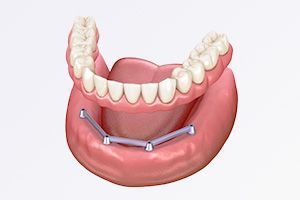Dentures
Comfortable natural-looking solution for missing teeth.
What Are Dentures?
Dentures are custom-made removable prosthetics designed to replace missing teeth in the upper or lower jaw. These natural-looking restorations restore oral function, enhance aesthetics, and improve overall confidence.
Crafted from high-quality materials such as acrylic, resin, nylon, metal alloys, and porcelain, dentures are tailored to provide a secure and comfortable fit while maintaining durability and functionality.
Types of Dentures
Choosing the right denture treatment for your smile.
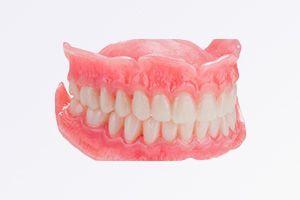
Complete Dentures
For patients who have lost all teeth in the upper or lower jaw, complete dentures provide a full smile restoration. If extractions are needed, a healing period of 2-3 months is typically required before fitting. Once placed, complete dentures offer comfort, stability, and restored functionality.
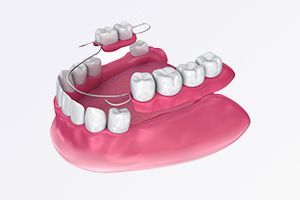
Partial Dentures
For patients with some natural teeth, partial dentures fill in the gaps while preserving the integrity of the remaining teeth. They enhance chewing and speaking abilities while maintaining a natural appearance. Removable for easy cleaning, they are custom-fitted for optimal comfort.
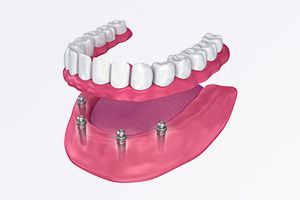
Implant-Supported Dentures
Unlike overdentures, implant-supported dentures are permanently fixed to dental implants, offering a long-term, stable alternative to traditional dentures. They do not require daily removal and feel more like natural teeth while providing superior strength, functionality, and longevity.
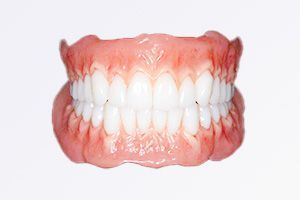
Immediate Dentures
For patients requiring tooth extractions, immediate dentures are placed on the same day, providing instant smile restoration. They serve as a temporary solution while the gums heal, preventing the inconvenience of missing teeth. Adjustments may be necessary as the mouth heals and reshapes.
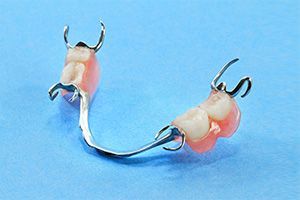
Flippers
Flippers are lightweight, temporary partial dentures designed for aesthetics while awaiting a permanent replacement. They fill gaps left by missing teeth, preventing surrounding teeth from shifting, and are typically used after extraction before permanent dentures or implants are placed.
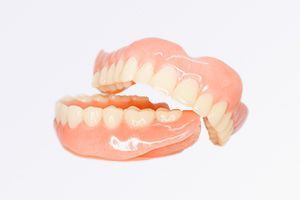
Soft Liners
Soft liners are used in full and partial dentures to enhance comfort and fit. They provide cushioning for patients with sensitive gums or jawbone irregularities, helping to prevent irritation and sore spots.
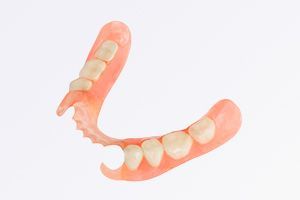
Relines
Relining modifies existing dentures to improve their fit. As the jaw and gums change over time, denture stability can be affected. A reline ensures a secure, comfortable fit, preventing dentures from becoming loose or slipping.
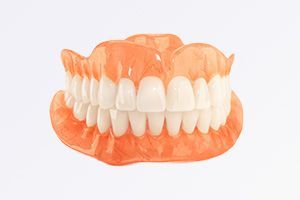
Rebases
Rebasing replaces the denture base while keeping the existing teeth intact, strengthening older dentures for improved longevity and function. It is ideal for patients with worn-out denture bases.
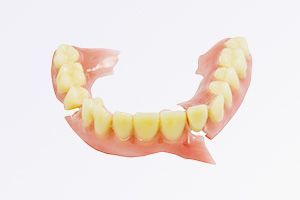
Denture Repairs
If dentures become cracked, broken, or loose, professional repairs can restore function and comfort. Repairs address fractures, worn-out parts, and missing teeth, ensuring continued performance and longevity.
Denture Procedure Procedure
Step-by-step guide to your denture treatment journey.
1
Initial Consultation
A thorough oral examination and discussion of your goals and treatment options. X-rays and impressions are taken for customized dentures
2
Treatment Planning
We determine the best type of dentures based on your needs.
3
Denture Fabrication & Fitting
Custom dentures are crafted for a precise fit and adjustments are made for comfort and function
4
Follow-Up & Adjustments
We ensure dentures fit properly and provide guidance on care and maintenance.
Aftercare & Maintenance
To extend the lifespan of your implant-supported dentures, follow these care tips:
- Practice Good Oral Hygiene – Brush and floss daily using non-abrasive
toothpaste. - Schedule Regular Dental Checkups – Routine visits help monitor oral health and ensure implant stability.
- Avoid Hard Foods – Limit chewing on ice, hard candies, and tough foods to prevent damage.
- Clean Dentures Properly – If removable, soak them in a denture cleaning solution overnight.
Dental Implant FAQs
Giving you the answers you need.
How painful are dental implants?
Getting a dental implant can be uncomfortable, and you may have some pain. It depends on your pain tolerance and the severity of your needs. However, our dental team will work with you to make you as comfortable as possible every step of the way. Once the procedure is complete and you have healed, you should have no pain from the implant itself.
Can anyone get dental implants?
Most people can get dental implants, and they are usually successful. However, there are a few instances in which there might be better solutions for your needs than dental implants. Our team will conduct a thorough examination and discuss your options with you before the procedure, including any concerns that may arise.
Does insurance cover the cost of dental implants?
The cost of your dental implants will depend on many factors, including whether your dental insurance will cover part of the cost. This varies based on your insurance provider and plan. Contact our office to learn more about financing.
What is the best age for dental implants?
The ideal age for dental implants is typically after adolescence when facial growth is complete. However, there’s no strict age limit. Candidacy depends on individual oral health and bone density. Consult with a dentist to determine the best time for you.
How many teeth can you replace with implants?
Dental implants can replace a single tooth, several teeth, or even a full set with options like implant-supported dentures. The number of teeth that can be replaced depends on your specific needs and oral health. A dentist will assess your case for personalized recommendations.
Is there a downside to dental implants?
While dental implants offer many benefits, they may not be suitable for everyone due to factors like cost, surgery, and healing time. Complications such as infection or implant failure are possible, but they are relatively rare. Discuss potential risks with your dentist before proceeding.
Who should not get an implant?
Certain medical conditions, such as uncontrolled diabetes or active gum disease, can affect implant success. Smoking and poor bone density can also be contraindications. It’s essential to undergo a comprehensive evaluation with a dental professional to determine if implants are right for you.

